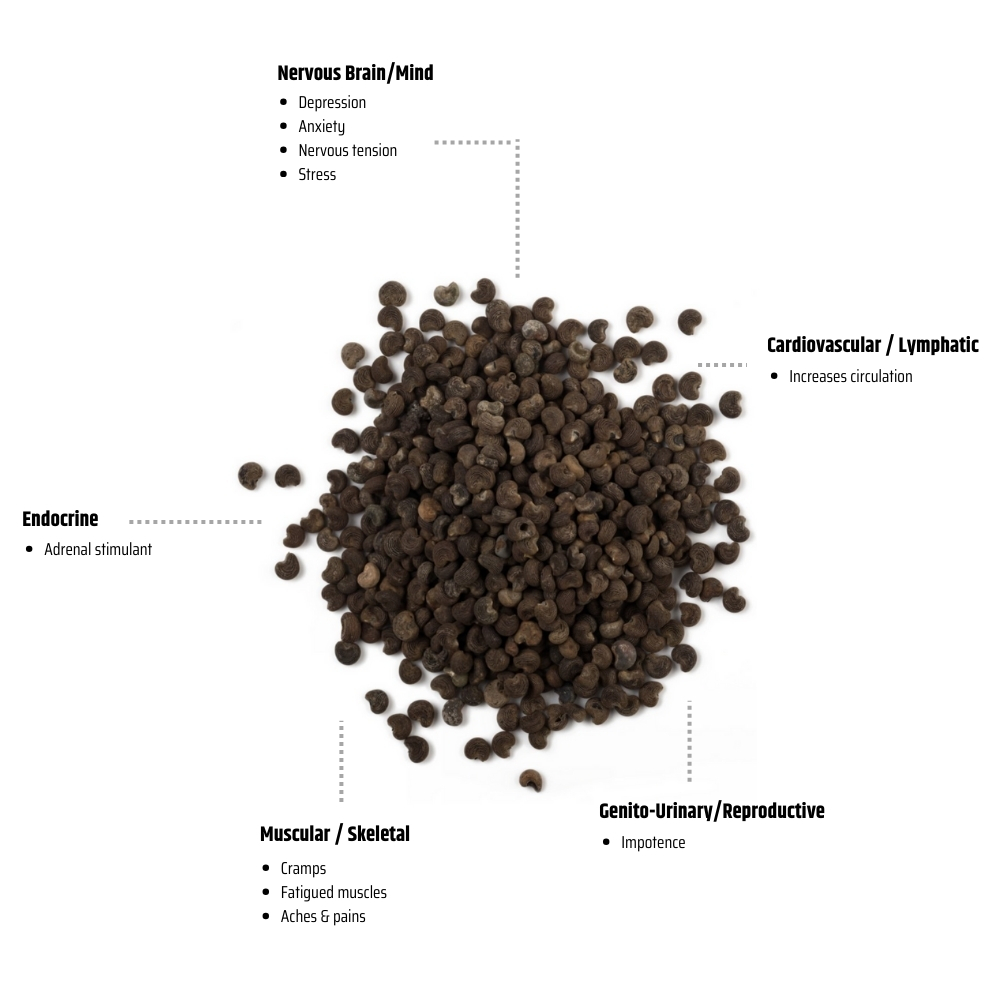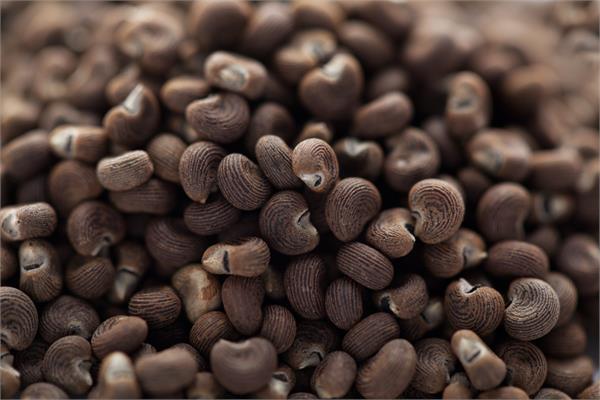
Australian Owned and Operated We have been proudly running for over 30 years

100% Pure & Natural Our products are sourced from the highest quality suppliers and growers from around the world

Not Tested on Animals None of our products are tested on animals

Vegan Friendly Our products are plant based and vegan friendly
Ambrette Seed
Abelmoscus moschatus
Source: Seeds
Origin: France
Energetics: Yang
Extraction Method: Steam Distilled
Scent: Ambrette Seed Essential Oil is used a a substitute for animal musk in perfumery. A sweet, earthy & musky bouquet with hints of herbs.
Blends Well With: Any other oil blends, but goes best with Floral and Aphrodisiac blends.
About
Ambrette Seed Oil paints a picture of a charming summer breeze that goes through a garden full of blooming flowers. It may help you clear those unwanted thoughts with its oriental surprise. Supportive of the adrenal glands. A de-stressor and anxiety reducer.
Historical Snippets
Ambrette Seed Essential Oil has a latin name meaning “father of musk” and is originally from the Arabic. Initially from the Indian Subcontinent the ambrette seeds were eventually traded into the Middle East. Used at the time as a spice and also to infuse into coffee. As musk from deer glands is now not being used Ambrette Seed Oil is the next best thing in natural perfumes.
Key Constituents
Below constituent ranges comprise 68% of the data within the normal distribution curve.
Growing conditions or plant chemotype can change constituent levels or constituents themselves.
- E-Farnesyl acetate 30.0–65.3%
- Farnesol 3.4–39.0%
- Ambrettolide 7.6–14.7%
- Decyl acetate 0–5.6%
- Dodecyl acetate 0.2–4.0%
- Nerolidol 0.1–2.0%
- Tetradecen-14-olide 0–1.8%
- Tetradecenyl acetate 0–1.6%
- Hexadecanoic acid 0–1.4%
- Decanol trace–1.0%
PLEASE REMEMBER
All our exotic and rare (hence more costly) essential oils and absolutes are available in jojoba. This allows you the benefit of enjoying Ambrette Seed Oil but in a jojoba oil base at a great price. An extremely cost effective way to experience essential oils and absolutes!
How To Use
Diffuse: Add a few drops to a diffuser to disperse around the room
Topically: Dilute essential oil with any carrier oil at a 2.5% ratio. This equates to 2.5ml essential oil/oils in total mixed with 100ml of chosen carrier oil. 1ml of essential oil is approximately 20-22 drops of oil. Decant into a roller or glass bottle with eye dropper to apply easily or a larger bottle if using for massage. Please note this dilution rate is for adults and children over the age of 6. More information on children and essential oils is on our blog page. Essential Oils should not be used directly on the skin without mixing first with a carrier oil
Inhalation: Add 1-2 drops essential oil to a tissue and inhale at a distance while ensuring that the oil does not come into direct contact with the skin. Alternatively, you can smell the oil directly from the bottle.
Shelf Life
Our freshly decanted Ambrette essential oil will last for 1-2 years minimum from when you open your amber glass bottle if stored correctly.
Primary Storage Considerations: Keep away from direct light (U.V. radiation). Keep in the amber glass bottle with lid tightly closed. Only open when you need to and decant into a smaller "working" amber glass bottle if possible (and label so you know what is in it). This is to reduce oxidation.
Secondary Storage Considerations: Keep in a refrigerator at around 4 degrees celsius.
Safety
General
Some essential oils may cause photosensitivity to the skin - Use diluted in Jojoba or other complete carrier oil.
Do not ingest essential oils.
Do not apply to eyes, sensitive areas or mucous membranes.
The information on this website is not intended to be used in the diagnosis, treatment or mitigation of any physical or mental illness. Ahimsa Oils offer no advice or recommendations only general information. No therapeutic claims are made within.
Pregnant women, nursing mothers and children should not use essential oils without first consulting an appropriately trained healthcare practitioner.
The statements on this website have not been evaluated by the TGA. David Bosley however worked for a long period in consultation with the TGA to ensure correct labelling with reference to the Ahimsa Oil product range.
Specific
Hazards: None known.
Contraindications: None known.
Do not use around pets.
References
Tisserand & Young. Essential Oil Safety, A Guide For Health Care Professionals: Second Edition 2013
Sheppard-Hanger, Sylla. The Aromatherapy Practitioner Reference Manual: Atlantic Institute of Aromatherapy, 1999. Print.
Tisserand, R., & Young, R. (2014). Essential Oil Safety: Second edition.
Lawrence 1993 p.177–178, 1996 p. 58)



 Available for $100 orders and over
Available for $100 orders and over


@PLOTP@360x240.jpg)


